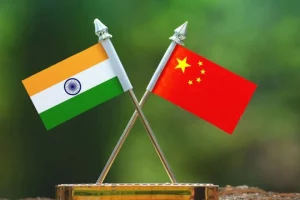External Affairs Minister S Jaishankar said that last of the disengagement agreements between India and China pertained to Depsang and Demchok and he had mentioned it in his detailed statement on the recent developments in the India-China border areas.
Responding to a question by Congress MP Manish Tewari in the Lok Sabha, Jaishankar said that the understanding envisages that Indian security forces would be going to all the patrolling points in Depsang and would be going to the eastward limit which has India’s patrolling limit in that part.
Manish Tiwari had asked a question on a paper presented by a senior IPS officer to the Conference of Director-Generals and Inspector-Generals of Police in 2023. According to Tiwari, in that paper, it was pointed out that 26 out of the 65 patrolling points from Korakoram Pass to Chumar were inaccessible to the Indian security forces as a consequence of Chinese transgressions. Tiwari asked whether the all those 26 patrolling points which were ostensibly inaccessible have become accessible or not.
In response to his question, Jaishankar said, “What somebody wrote as a paper is for that somebody to answer for. I can answer for the government. Now let me, let me sir through you, remind the honorable member, I gave a very detailed statement on the disengagement and recent developments in the India-China border areas. In that statement, I highlighted that the last of the disengagement agreements had taken place which pertained to Depsang and Demchok.”
He further said, “I also would like to convey to the Honourable Member, it was in the statement as well, that the understanding envisages that Indian security forces would be going to all the patrolling points in Depsang and would be going to the limit, eastward limit which has historically been our patrolling limit in that part. We have also, the same statement made it clear that we have had some previous disengagement agreements. Those disengagement agreements also had certain provisions where both sides on a temporary basis had agreed to put certain restraints on themselves. So I think the position is very clear in that statement, and I would urge the honorable member to read that statement again.”
In October this year, India and China reached an agreement regarding patrolling arrangements along the Line of Actual Control (LAC) in the India-China border areas.
The border standoff between India and China began in eastern Ladakh along the LAC in 2020, and was sparked by Chinese military actions. It led to prolonged tensions between the two nations, significantly straining their relations.
During the meeting of Prime Minister Modi with Chinese President Xi Jinping on the sidelines of the BRICS Summit held in Russia’s Kazan, PM Modi had said that maintaining peace and stability on the border should remain the priority of the two countries and mutual trust should remain the basis of bilateral ties.



















